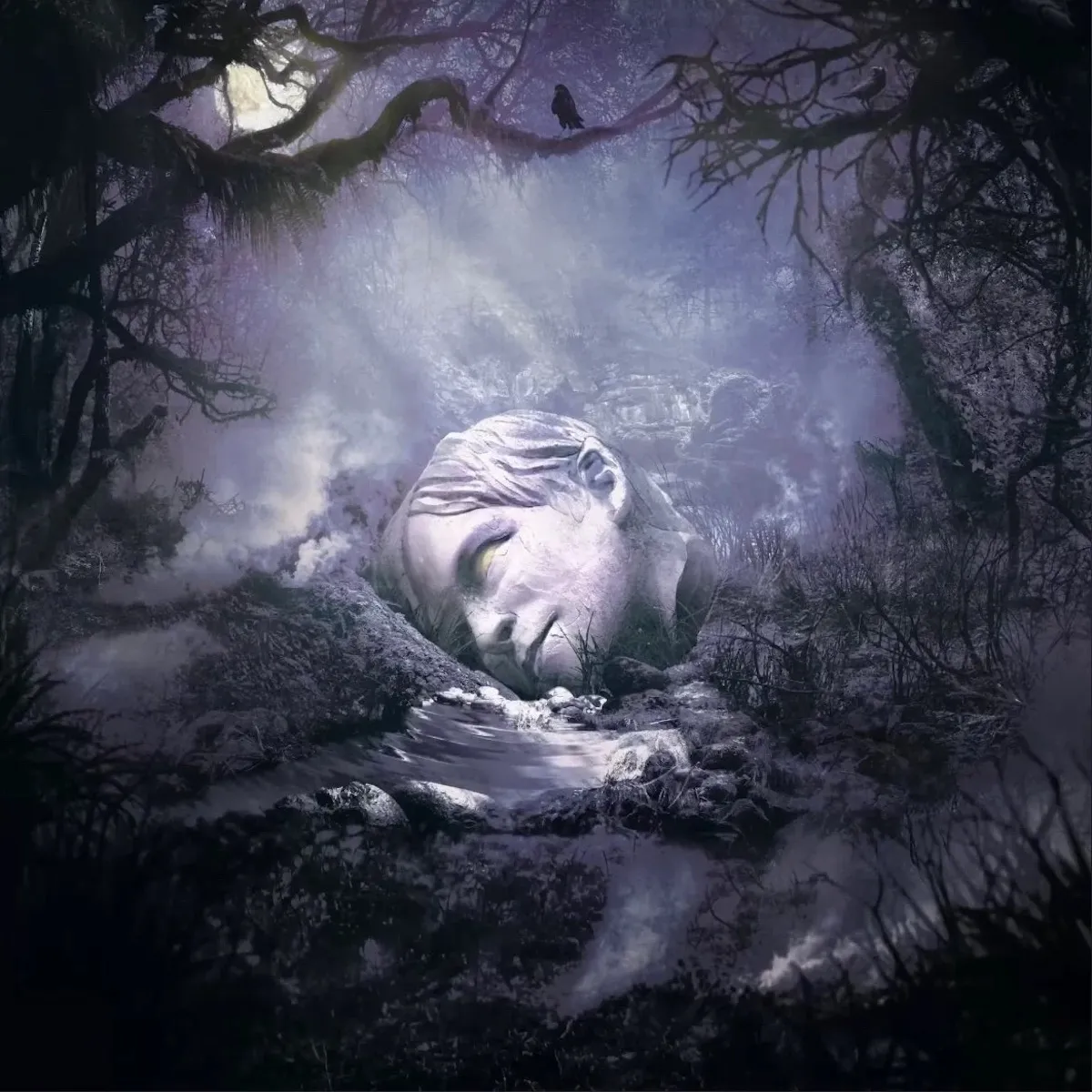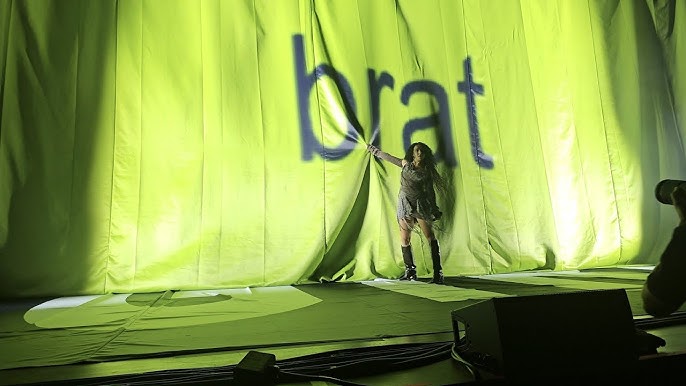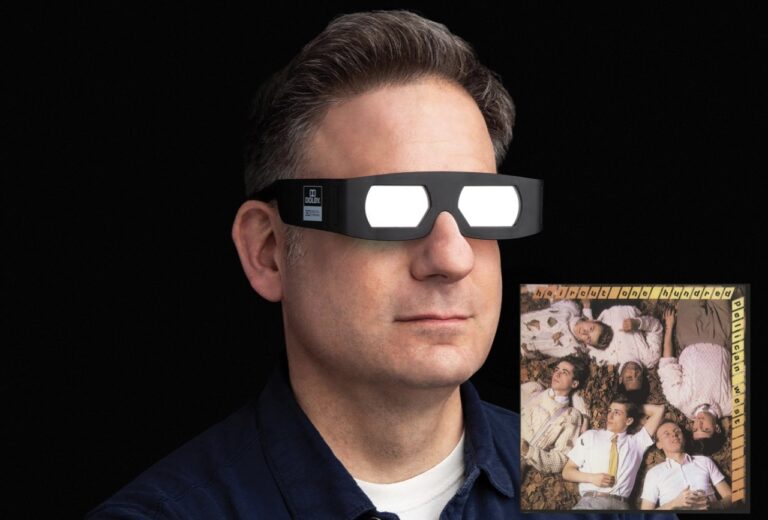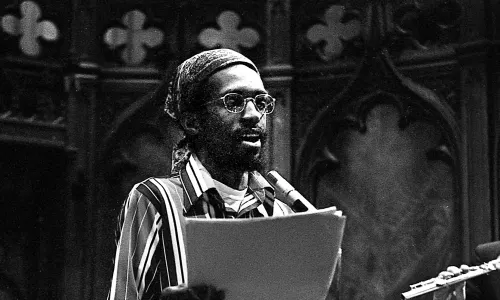Weezer Finds Fresh Feel for Fall on SZNZ: Autumn EP

Weezer is nothing if not prolific. It was thirty years ago that they formed in Los Angeles, and in the decades since, the band—which consists of main songwriter, vocalist, and guitarist Rivers Cuomo, drummer Patrick Wilson, guitarist Brian Bell, and bassist Scott Shriner—has put out 15 studio albums and eight extended plays. Their most recent release, the EP SZNZ: Autumn, released last Thursday, Sept. 22, on the autumnal equinox, blends new influences with Weezer’s classic sound to largely triumphant effect.
The SZNZ (pronounced “seasons”) project, which began with Spring in March and continued with Summer in June, and with the final installment, Winter, planned for December, sees the band explore a range of sonic styles to suit each season. Spring had a breezy, mandolin-tinged vibe, Summer featured fiery guitar licks, and Autumn sees the band pair their guitars with retro synthesizers and shuffling beats that recall the early-2000’s dance-punk revival.
A brisk listen at seven tracks, Autumn starts with a bang with “Can’t Dance, Don’t Ask Me.” The track opens on a buzzing synth tone reminiscent of 1996’s Pinkerton, before building into a fast-paced, danceable beat. This bright soundscape is paired with a set of playfully self-effacing lyrics from Cuomo, including the chorus refrain of “I always wish I was doing what somebody else is doing/But I can’t dance, don’t ask me.” “Can’t Dance, Don’t Ask Me” introduces the continuing influences that run through Autumn while also carrying on a proud Weezer tradition of crafting upbeat odes to nerdiness.
The EP’s second track, “Get Off On The Pain,” is more emblematic of Weezer’s classic guitar-heavy power pop style, though the synthesizers make a return during the song’s gloomy, atmospheric bridge. Though changes in tempo make the verses and chorus feel slightly disjointed, “Get Off On The Pain” succeeds off the strength of its melody, Cuomo’s raw, passionate vocal performance, and its spiritually-tinged lyrics. Faith and crises thereof have been a recurring theme throughout the SZNZ EPs, manifesting in “Get Off On The Pain” in lines like “Now I wonder if a man can fly/ With all his sins suspended from his body/ Each of us was born to live and die (Why?)/ But I could never follow orthodoxy.”
Cuomo is from a diverse, complicated religious upbringing, having been born into a Catholic extended family and raised in Buddhist and Hindu communes. Following the divorce of his parents, Cuomo’s father became a born-again Pentecostal minister, and the ensuing tension this reinvention caused with a young Cuomo is the subject of Weezer’s 1994 hit “Say It Ain’t So.”
Following “Get Off On The Pain,” “What Happens After You?” is the promotional single of the EP, and is accordingly catchy. Towards that end, it’s the only song on the EP to have writers in addition to Cuomo (typically Weezer’s sole songwriter), featuring co-writers Anthony De La Torre, Desmond Child, Eric Bazilian, and Rob Wells. The track blends more mellow verses with a frantic, falsetto-driven chorus, as the lyrics question whether the narrator will be able to carry on following a relationship’s end. Even with its greater sense of pop polish and synth-driven dancefloor vibe, “What Happens After You?” retains a rock edge, with a driving guitar solo in the bridge and booming half-time breakdown.
In the middle slot of the EP is “Francesca.” The track takes on the bones of a basic pop-rock love song, but invigorates the track with quirky lyrics inspired by Napoleon Bonaparte’s relationship with his wife Joséphine, alongside twinkling synths and skittering high hats. By its final repetition, the track’s initially straightforward chorus grows in power as the instrumentation behind its confessions of love picks up in intensity.
After its invigorating, breakneck start, Autumn mellows out on “Should She Stay or Should She Go,” to more mixed results. With its swinging beat and crooning harmonies, the song feels like a retro throwback, a mellow oddity on an otherwise spiky-sounding EP. A concluding saxophone solo and fade-out, two sonic features not heard anywhere else on Autumn, further contribute to “Should She Stay or Should She Go,” feeling somewhat out of place.
Things kick back into full gear on penultimate track “Tastes Like Pain.” A scorching two-minute dose of guitar-driven self-loathing, the song samples the “Winter” concerto of Antonio Vivaldi’s The Four Seasons, (a thematic inspiration for SZNZ) which lends a sense of classical melodrama to the song’s theatrical emotions. The track’s crashing drums and crunching guitars, accompanied by Cuomo’s plaintive vocals and final, breathless repetition of “I’m to blame” make “Tastes Like Pain” one of the most palpably angsty songs Weezer has put out in several album cycles.
Closing out Autumn is the show-stopper “Run, Raven, Run.” Clocking in at over five minutes (an epic by Weezer’s short-and-sweet standards), the track is another to sound more like classic Weezer than the dance-punk tint heard periodically on Autumn. For the first two verses and chorus, “Run, Raven, Run” is a brisk, catchy pop-rock tune, imploring its titular subject to flee in what may be read as a metaphor for running from fate or death.
Around the two-minute mark, though, the real fireworks start. First is a richly melodic and heartfelt bridge, which Weezer die-hards will recognize as originating from the fan-favorite 2015 demo “Pacific Sunset.” Then comes an extended instrumental break, which slows to a near stop. As things pick back up, background synthesizers and Cuomo’s voice, layered into rich harmonies, alongside the accelerating drums and guitars, give the build a sense of uplift and euphoria. Just as this build-up reaches its climax, everything washes away, the narrator having found either peace or death. The song’s haunting outro features a spare repetition of the chorus, now pared down to Cuomo’s voice, a near-whisper, and the twinkling tones of a music box. In the background, coughs are audible (Cuomo’s own, recorded during an August bout with COVID). In the final seconds, church bells and the crowing of birds can be heard, generating a decidedly eerie mood as things move from the upbeat Autumn towards what promises to be a slow, melancholy sound for Winter.
Weezer has always been a quantity-over-quality sort of band. Even die-hard fans can admit their discography has some filler, if not some downright stinkers. But the upside to their incredible prolificacy, (beyond the SZNZ series this year, they also released two studio albums in 2021), is that you’re always bound to find some gold in that river of output. Though Autumn has its less engaging moments, most of the EP’s runtime is full of exciting, heart-on-their-sleeve tracks that hold their own among the band’s best, and make it by far the strongest entry in the SZNZ series thus far.
Oscar Kim Bauman can be reached at obauman@wesleyan.edu.








Leave a Reply